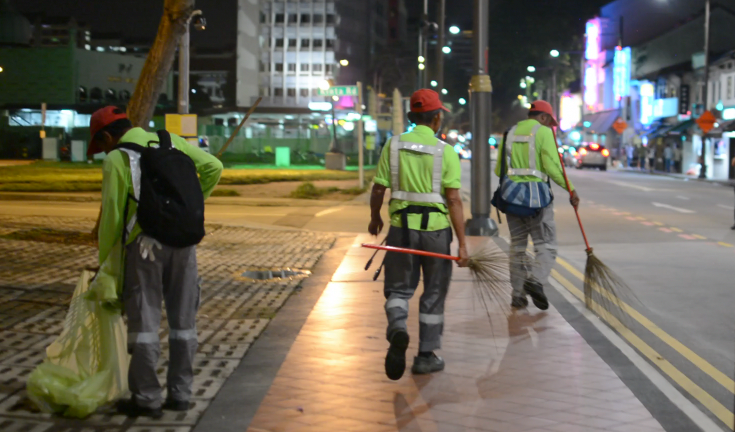Timely call to boost wages
I refer to the article “Timely call to boost wages” (Straits Times, Jun 3).
NWC: Raise “up to $1,200 workers’” pay by $45 – $60
It writes:
“On Wednesday, the National Wages Council (NWC) urged employers to raise the pay of workers earning up to $1,200 per month by between $45 and $60 this year.
This is the sixth year in a row it has recommended minimum pay hikes for low-wage workers. The amount was set at $50 in 2012 and raised to $60 in 2013, where it stayed for three years. Last year, the recommended hike was a range – from $50 to $65.
One cannot help but wonder: Why did the council make recommendations in the same vein for six years? It seems it has not made enough impact.
This view is backed by data. Last year, the NWC urged employers to reward workers earning up to $1,100 per month with pay hikes of between $50 and $65.”
Only 21% of employers increased wages?
As to “But only 21 per cent of employers did so” – actually it was even worse in the previous year (2015), when only 18 per cent of companies, the majority of which are not unionised, gave their low-wage workers a pay rise of at least $60 in 2015.
More than 70% didn’t get increase in 2012?
Also, more than 70 per cent did not get the recommended increase in 2012.
So, the statement – “Here is the rub: Employers can legally ignore NWC guidelines. Most do. While unionised firms fared better – about half of low-wage workers in such firms received the minimum stipulated fare hikes – even the unions could not get more employers on board” – may not be giving a complete picture (implies unionised better?), as “the majority of which are not unionised, gave their low-wage workers a pay rise of at least $60 in 2015”.
In respect of “First, the NWC has progressively expanded its minimum pay hike call to cover more low-wage staff. When the NWC first recommended a minimum $50 pay hike in 2012, it set the bar at those earning up to $1,000 a month. It was gradually raised to $1,100 in 2015 and $1,200 this year. This recognises that while low-wage workers are earning more, they continue to need help to boost their incomes” – after deducting their employee CPF contribution which I understand is included in the gross income cited – the net take home pay for $1,200 is only about $960 ($1,200 x 0.8) – how do these low-income workers survive with the rising cost of living which has made Singapore the most expensive city in the world, according to the Economist?
Earn over $1,200 don’t need increase?
Also, what kind of message is the NWC giving, arguably – that those who earn more than $1,200 do not need a wage increase?
With regard to “The NWC’s call may sound repetitive, but it is nonetheless timely and still relevant” –
Increase for how many workers?
Instead of just telling us the percentage of companies – please also tell us how many workers in Singapore, did not get the increase?
80% had no wage increase for at least 5 years?
In the final analysis, what we may be looking at is about 80 per cent of low-wage workers who may not have had any wage increase in at least the last five years or so, as an employer can simply ignore the NWC recommendations every year!
Name the employers?
Perhaps it may be time to name the employers who are making profits, but who are not increasing the wages of its low-wage workers?



